On Friday, I was honored to be a part of a conversation titled “Hot Topics in Eating Disorder Treatment,” hosted by Castlewood Treatment Centers and Balanced Eating Disorder Treatment Center here in New York City. The workshop’s moderators were Tammy Beasley and Melainie Rogers, both registered dietitians who specialize in ED treatment.
One of the topics under discussion was whether or not vegans can and should be treated in high-level, in-patient care. Tammy and Melainie invited me to share about my own recovery and relationship to veganism; I also shared a sample, 4,000 kcal outpatient meal plan.
For years, it has been the policy of many ED treatment centers not to accommodate vegan diets (vegetarianism is usually OK). This leaves vegan patients in the position of making potentially painful dietary choices or trying to “go it alone” with their care. I have the sense that many treatment providers are starting to question whether this stance is tenable, given a rapidly expanding vegan population in the US. Yet there’s very little research available to inform how vegans would be treated at higher levels of care, and many ED dietitians lack familiarity with plant-based diets and the foods that are available within them.
I was candid about the fact that I’ve never experienced in-patient care myself and that my ED preceded my veganism; in other words, I don’t have much perspective on re-feeding as a vegan eater. But I do feel that veganism has been an integral part of my healing process. I had regained physical vitality by the time I transitioned from being vegetarian to vegan, but I hadn’t yet made peace with food. Veganism animated my choices with a sense of purpose, compassion, and connection to life, and it turned out to be the cornerstone that I needed.
Veganism wasn’t a cure: it was part of a much bigger process of healing and self-examination that was only possible with extensive therapy and support. And I understand that the lifestyle that has been so healing for me can be a trigger or a hindrance to other people with restrictive histories. Melainie noted that vegetarian diets often serve as “smoke and mirrors” for the disease, and of course it’s important to acknowledge this, creating the necessary vigilance around it.
But I know that my experience with veganism isn’t singular, either, and my intention in sharing at the workshop was to acknowledge my own story and others. For those who are already firmly rooted in a vegan lifestyle when the ED develops, I believe that dedicated, well-researched vegan treatment options would serve as a compassionate expansion of the healing space. If I’ve learned anything about ED recovery, it’s that the process looks very different for each person; all the more reason for us to pave all of the pathways with informed guidance and support.
The workshop’s other two topics were the “language landmine” of eating disorder treatment—the fact that words like “healthy” are now loaded with complex meaning that hits each person differently. How can practitioners speak fluidly while also being mindful of language and its power? I loved this discussion; it gave me so much to think about as a blogger and a future RD. It reminded me how important it is to establish and clarify the meaning of words and phrases with my clients, rather than assuming that my own definition holds for the person I’m working with.
The final topic was bariatric surgery as a part of ED treatment. Another speaker detailed how surgery gave her the space and relief she needed to address Binge Eating Disorder and its role in her life. It was interesting to observe all of the mixed feelings about surgery and its complications in the room; the main concern voiced was that psychological and ED screening prior to surgery is often inadequate. The speaker made clear that her recovery, like mine, wouldn’t have been possible without therapy. But for her, therapy and its associated processing was only effective after the surgery helped to regulate her appetite.
The workshop left me with two main takeaways. The first is that ED treatment, along with all dialogs about food and body, is endlessly complicated. Much as practitioners might wish to be above reproach in how they treat, the reality is that we’re bound to make mistakes and to confront our own biases and judgments along the way. Better to be brave and keep doing the work, acknowledging that missteps will happen, than to shy away from it. This is an important lesson, especially since many RDs have ED histories of their own and may struggle with lingering perfectionism.
The other message I left with is one that I’ve felt in my heart for a long time, which is that we can create space for a multitude of recovery options without feeling the need to endorse any one of them as being exclusively valid. Nutrition is a science, but dietetics practice deals with people, and people are varied. Much as I believe that it’s important to collect research and data about ED treatment, using it to inform best practices, I also feel strongly that it’s important for providers to remain open to the possibility of new treatments. This includes treatments that aren’t appropriate for some or even most people with EDs, but may prove life-saving to others. A willingness to revise or broaden understanding is what science is all about.
It’s been a long time since I’ve opened up about recovery in an unfamiliar setting, and I definitely left the workshop feeling vulnerable. I worried that I hadn’t articulated my story clearly enough, and I felt as if there was so much more to say about the complexities of veganism and recovery. But it was in keeping with the spirit of the day to believe that speaking up, even if I did it imperfectly, was better than not speaking at all. And I’m really grateful to Melainie and Tammy for having created such a welcoming, courageous space for me and others to do that in.
I’m now just over a week away from my graduation, feeling exhausted but relieved that there’s an end in sight. Here are the recipes and articles I’ve been peeking at this week.
Recipes
Spring is here! And this lemony mint pesto potato salad is a perfect way to welcome it.
I can never have too many sloppy lentil recipes.
I love the idea of cauliflower rice in a big old pot of stew! Susan’s red lentil and cauli rice soup is genius.
Those ginger miso sweet potatoes, though.
I think I know what my first post-graduation baking project will be!
Reads
1. Nothing surprising here, but good to see it publicized: there are still significant nutrition knowledge gaps in medical training in the US.
2. Positive associations continue to emerge between Mediterranean-style eating patterns and protection of cognitive function.
3. On a similar note, nutrition researcher Walter Willett continues to call attention to the potential of meatless diets to prevent prevalent chronic diseases, including cardiovascular disease and type II diabetes.
4. It seemed appropriate that, right after Friday’s workshop, I found Roxanne Gay’s article on the choice to have bariatric surgery. It is a deeply personal meditation on a topic that often evokes strong feelings and opinions, and I think it’s brave of her to share her experience.
5. While we’re on the topic of courage: Olympic athlete Jana Pittman is speaking out about her 15-year battle with bulimia.
Anytime I’m part of a dialog about EDs, bodies, and food, I’m reminded of the strong cloud of shame that surrounds these topics for so many of us. I send love and gratitude out to any person who’s willing to speak, share, and shine a light.
Till soon,
xo
You might also like
Happy Sunday, everyone! As always, I hope that the weekend has brought you rest and restoration. Steven’s birthday was this past week, so we had a small celebration with friends on Friday and some quiet time yesterday. Now I’m catching up on meal plans for clients and diving into these recipes and reads. First, a super simple but delightfully summery lunch idea from Ashley of Cookie Monster Cooking: summer garden veggie flatbreads. Next, I love these crispy avocado tacos with roasted radishes and…
Good morning, friends, and happy Sunday. It’s hard to believe that August is already here. I’m fighting the urge to start fretting–as I do nearly every summer–about all of the summery things I haven’t yet done: the outdoor concerts I haven’t seen, the picnic lunches I haven’t eaten, the languid hours of reading on sunny benches that haven’t happened. It’s so easy to idealize summertime, to envision it as a series of postcard-perfect snapshots. Of course, the truth is that summer holds no…
I heard a saying the other day: “worrying is like praying for bad things to happen.” I can’t figure out how I feel about it. My immediate reaction was to think that the saying ascribes too much intention to worrying. If nothing else, to frame worrying as a manifestation of negative outcomes is exactly the sort of formulation that would make a worrier worry more. Many worriers can’t control their “bad thoughts,” no matter how hard they try. The thoughts feel nothing at all like prayers; they…
Happy Sunday, friends! I finished up my clinicals on Friday, and life is good. I’ve also got the cold/malaise situation that I typically develop at the end of a busy semester, so I’m taking this afternoon off to rest and drink tea. While I’ve been too tired to do much, I haven’t been too tired to bake, and I’ve got a delicious new snack cake recipe coming to you tomorrow—and some great article links for next weekend. For today, so much love. xo

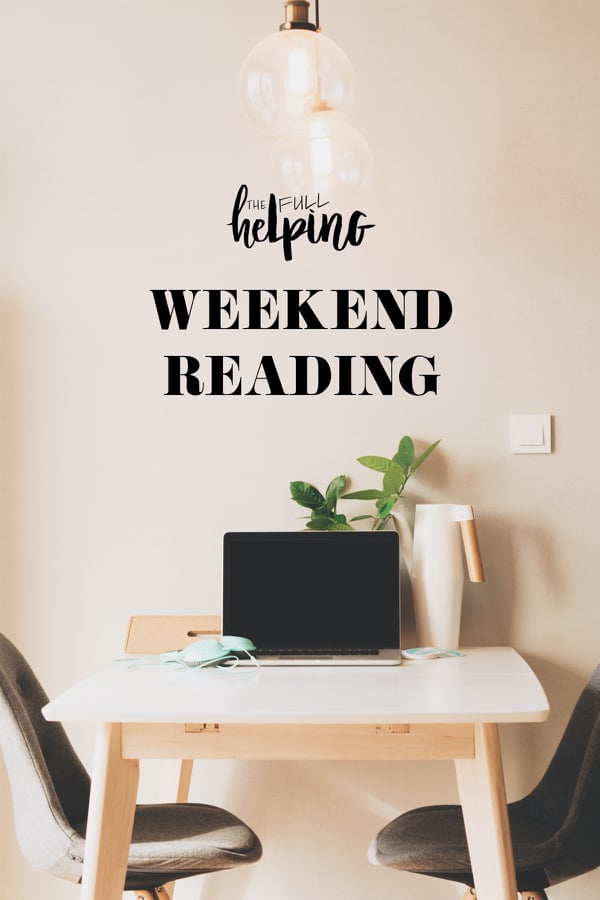
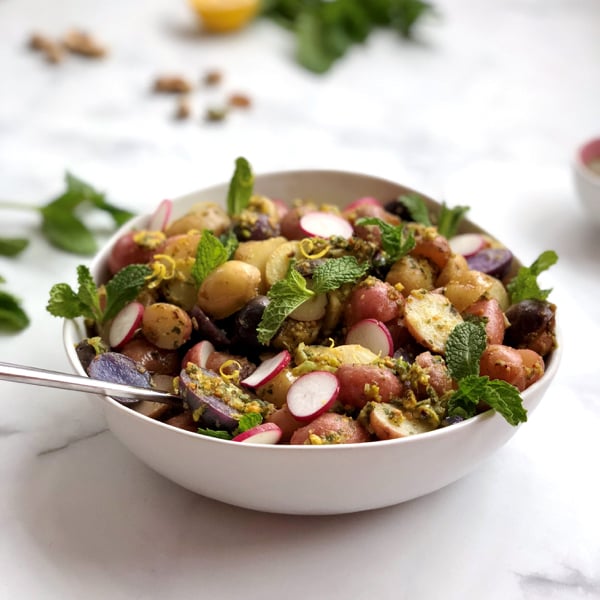
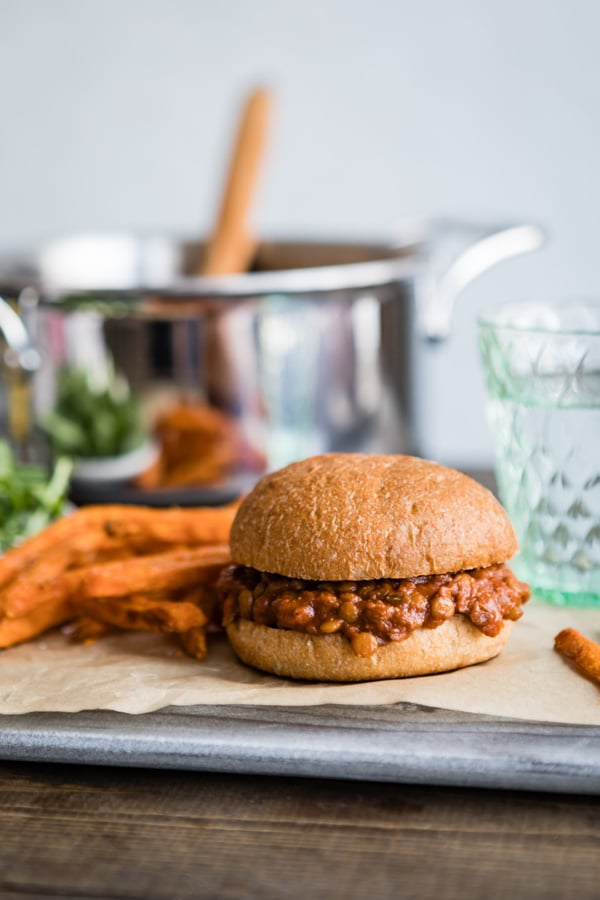
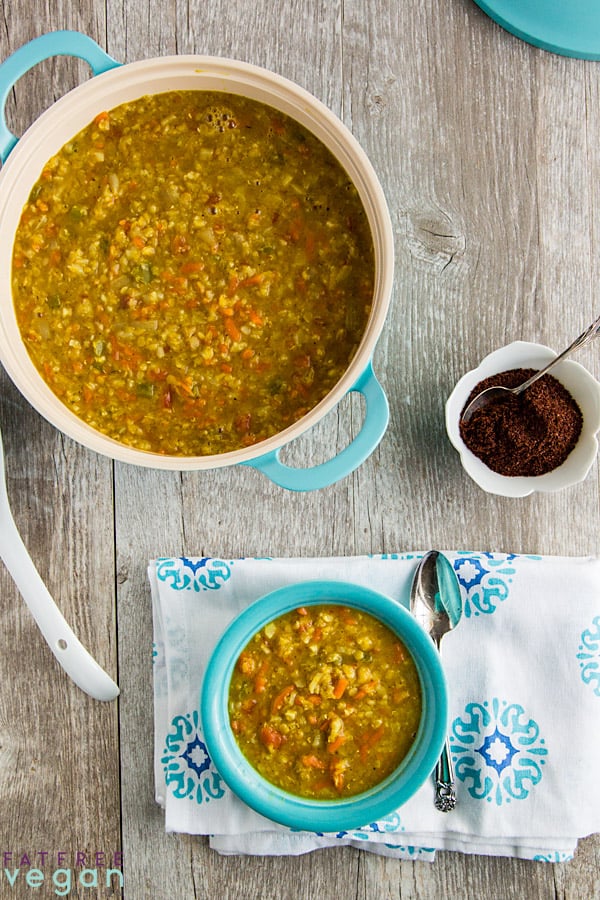
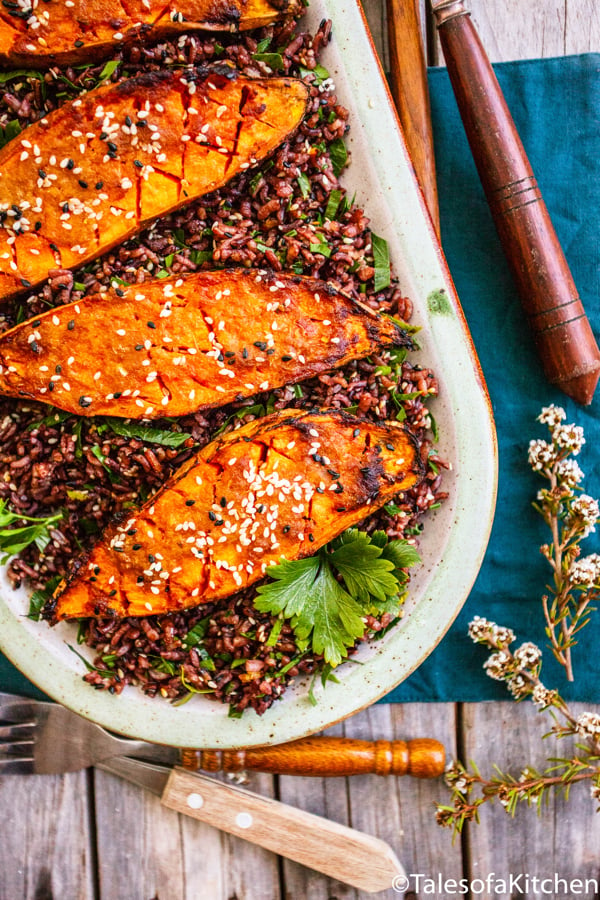
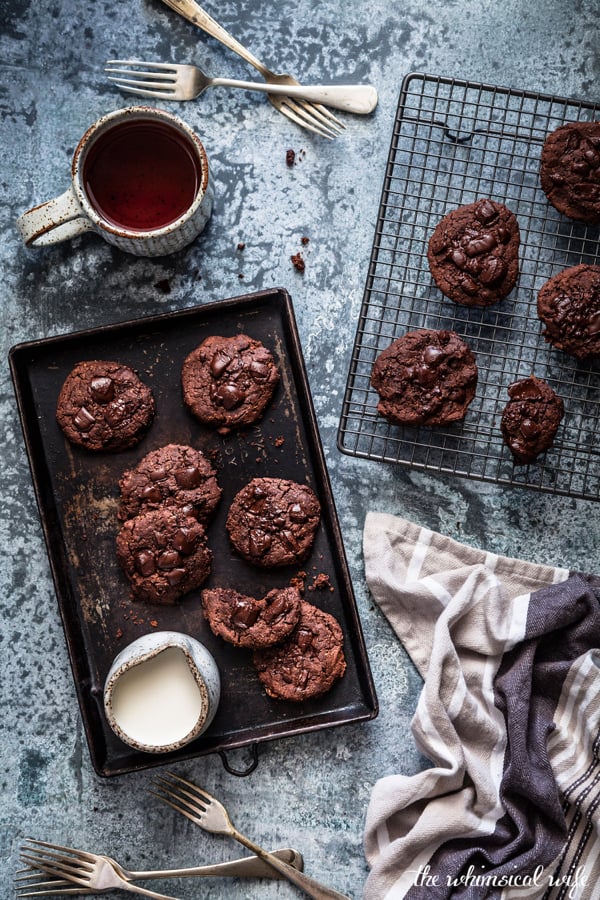
Leave a Comment
Thank you, Gena, for this serious look at treatment options for eating disorders and how veganism is beginning to be more addressed in that treatment. It’s all very important and I’m glad you got to add your voice to the discussion. I was absolutely torn open reading Roxane Gay;s article on her choice to have bariatric surgery. The library has Hunger for me and now I will be reading it after knowing this. It’s not to be forgotten. On a lighter note, I’m very drawn to those miso sweet potatoes. And I loved reading more cheers for plant-based diets! Thanks for your continued commitment to give voice to the multiple ways people both suffer and heal when it comes to feeding our bodies.
xoxoxo
Thanks Gena.